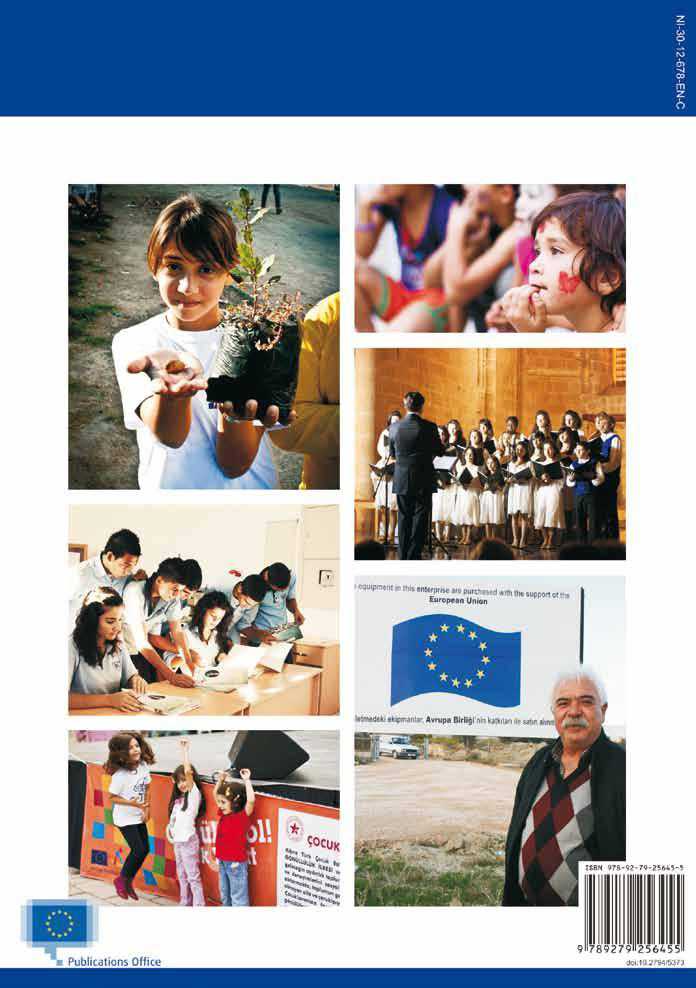Aid Programme for the Turkish Cypriot Community
Background

Cyprus joined the EU on 1 May 2004 as a de facto divided island. The EU fully supports the current negotiations (under the auspices of the UN) between the leaders of the Greek Cypriot and Turkish Cypriot communities which aim to reach a comprehensive settlement leading to the re-unification of the island and establish a bi-zonal, bi-communal federation in which the communities would enjoy political equality. Such a settlement is urgently needed to end a conflict that is now more than 40 years old.
The EU will accommodate a Cyprus settlement that allows the country to play its full role as an EU member while respecting the EU’s basic founding principles – democracy, the rule of law and human rights.
Pending a settlement, the European Commission has several specific responsibilities with regard to Cyprus, over and above its normal responsibilities toward a member country:
closely following the negotiation process and providing political and technical support
directly implementing the aid programme decided by EU member countries to help the Turkish Cypriots prepare for reunification.
regularly reporting on the implementation of the Green Line Regulation.
To meet these responsibilities, the Commission’s Directorate-General for Enlargement has set up the Task Force for the Turkish Cypriot community. The task force runs a ProgrammeSupport Office (EUPSO) in the northern part of Nicosia, to act as a contact with the beneficiary community and help deliver the assistance.
The Green Line
The whole of Cyprus is EU territory. However, in the northern part of the island, where the Government of Cyprus does not exercise effective control, EU legislation is suspended in line with protocol 10 of the 2003 accession treaty.
Since 1974 the “Green Line” separates the two parts of the island. The EU’s Green Line Regulation 866/2004 , sets out the terms under which persons and goods can cross this line, which is not an external border of the EU.
The main practical effect is that the northern areas are outside the EU’s customs and fiscal territory – but this does not affect the personal rights of Turkish Cypriots as EU citizens. They are citizens of an EU country – the Republic of Cyprus – even if they live in a part of Cyprus not under government control.
The situation will change once a Cyprus settlement enters into force and EU rules apply over the whole of the island.
While many people move across the green line every day, trade across the line is limited (approximately €400,000 per month).
Aid for the Turkish Cypriot community
In 2006, the EU approved aid regulation 389/2006 to end the isolation of the Turkish Cypriot community and to help prepare for reunification. €259 million was allocated for a 5‑year programme to be implemented by the Commission (DG Enlargement).
Programme objectives:
promote social and economic development in the Turkish Cypriot community (particularly rural, human‑resources and regional development)
develop and refurbish infrastructure (particularly energy, transport, environment, telecommunications and water supply)
foster reconciliation, build confidence and support civil society
bring the Turkish Cypriot community closer to the EU, through information and contacts between Turkish Cypriots and other EU citizens
help the Turkish Cypriot community prepare for the implementation of EU law once a comprehensive settlement of the Cyprus issue is agreed.
From 2011 on, assistance has continued in the form of annual allocations of €28 million, to build on the results achieved and support the ongoing UN process.
For more information on EU assistance to the Turkish Cypriot community, have a look at our brochure or go to the website of the EU InfoPoint.
Brochure : ec.europa.eu/enlargement/pdf/key_documents/2012/20121128_assistance_to_tcc_brochure.pdf
via EU – Enlargement – Aid Programme for the Turkish Cypriot Community – European Commission.

Leave a Reply